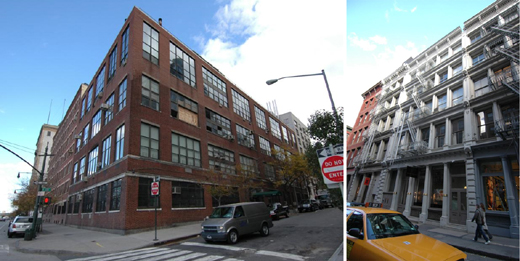Downtown Properties, a Manhattan-based residential management firm, is facing at least two lawsuits alleging that it misappropriated funds and failed to account for rent receipts, common charges and other payments.
The first plaintiff, a co-op owned by Riverbank South Owners Corp., filed a June lawsuit in New York State Supreme Court, alleging that Downtown Properties failed to account for $550,000 in funds.
The co-op, located at 377 West 11th Street, entered a 2007 agreement with Downtown Properties to manage its finances, according to the lawsuit. In June 2008, Riverbank South officials deposited $1.2 million into its Bank of America account after it refinanced its mortgage, and one month later asked Downtown Properties to transfer $500,000 into a certificate of deposit with NCB Bank.
In March 2009, Thierry Noyelle, the president of Riverbank South’s board of directors, inquired about the status of the $500,000, but did not get an answer, the lawsuit alleges. The plaintiff claims that the funds were never deposited into the CD, but into an account with JP Morgan Chase. The lawsuit further states that similar problems exist in other buildings managed by Downtown Properties, but did not specify the other buildings.
“We have not received answers to the complaint yet from any of the defendants,” said H. P. Sean Dweck, attorney for Riverbank South. “I don’t know what the motives were behind why the funds were unaccounted for.”
Richard Bassik, president of Downtown Properties, was not immediately available for comment. An attorney for Downtown Properties declined to comment.
In an April lawsuit filed in New York State Supreme Court, the second plaintiff, 115 Spring Street, alleges that at least $790,000 was missing from the operating account for the property, a loft building that was originally purchased by four families in 1972.
The suit alleges that between June 2008 and March 2009, Bassik transferred at least $530,000 from the building’s HSBC bank account for an unknown purpose. The suit further states that there was a specific payment of $27,760 to an unknown entity.
After asking about a certificate of deposit at JP Morgan Chase, which held the security deposit for a building tenant, a bank official informed the plaintiff that Bassik opened up unauthorized savings and checking accounts registered to 115 Spring that only he could sign, the suit says. The plaintiff claims that the $530,000 was transferred into those accounts, further charging that most of the funds were then transferred to his own personal accounts, and he refused to account for the funds.
A state Supreme Court judge later ordered both of the accounts frozen until further investigation.
